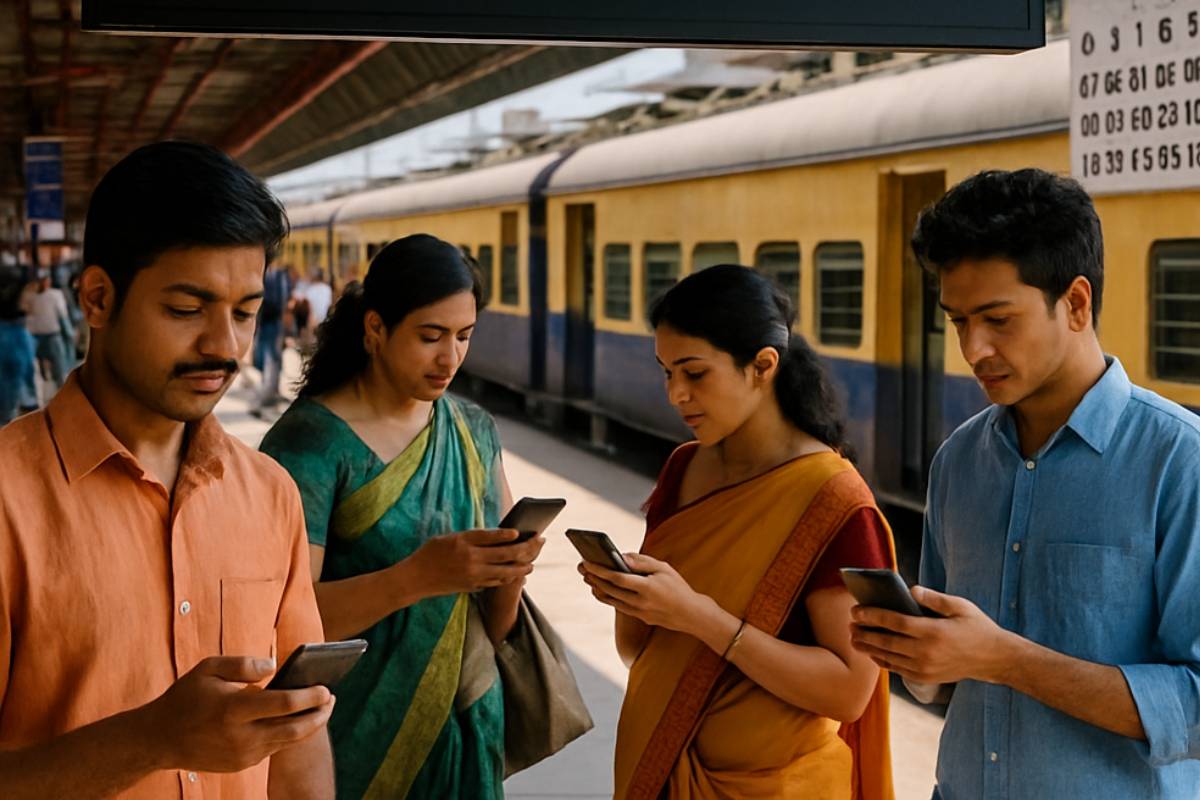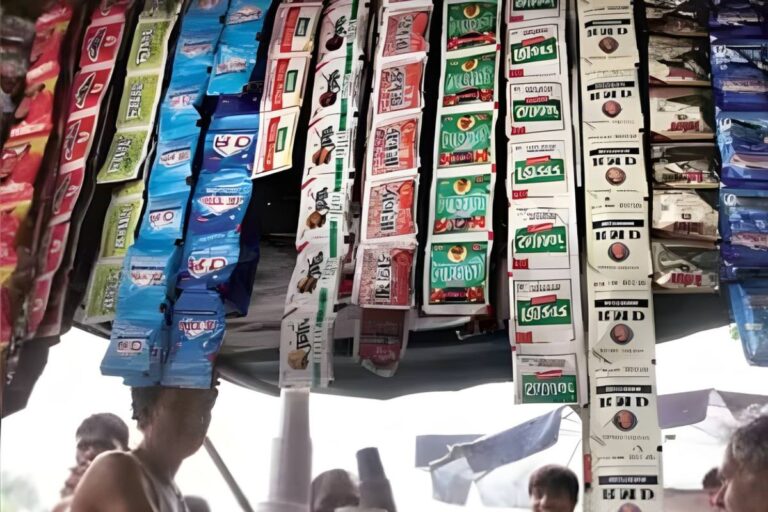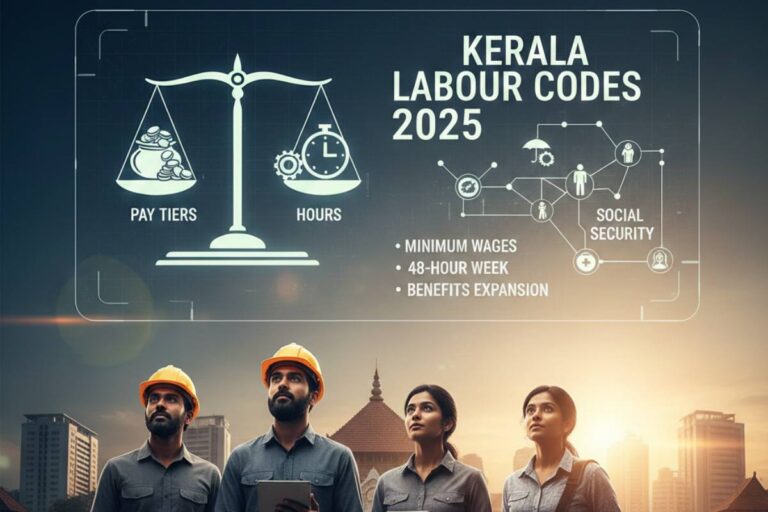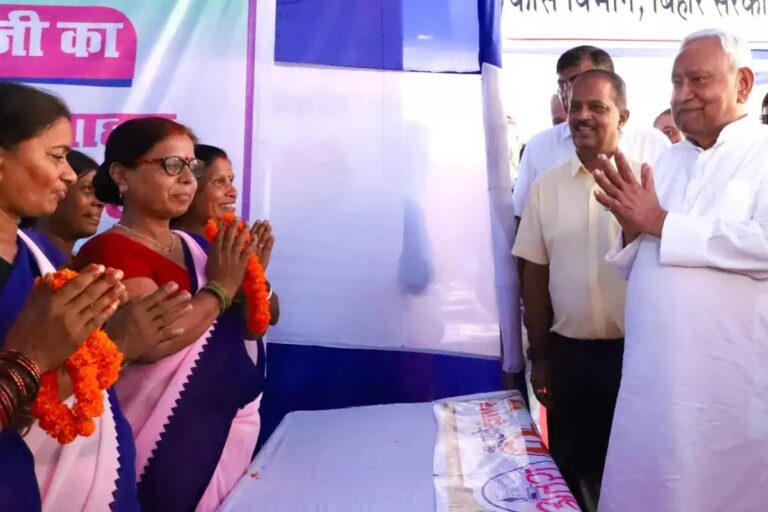A significant update to Indian Railways’ online reservation system will grant verified users priority access. Beginning on October 1, 2025, only passengers who have successfully verified their Aadhaar identity will be able to reserve general reserved train tickets on IRCTC’s platform during the crucial first 15 minutes of reservation openings.
This is a targeted response to the pervasive ticketing fraud that has been ailing the system for years, not just another bureaucratic roadblock.
Comprehending the New Booking Window Limitations
A two-tiered access system is established by the new regulation during periods of high booking demand. Only users who have completed Aadhaar verification through their IRCTC accounts will be able to book tickets for those crucial first 15 minutes when reservations open at 12:20 AM for any train, which occurs 60 days before the travel date.
This is how it functions in real life:
- Tickets for the Shiv Ganga Express from New Delhi to Varanasi on November 15 can be purchased starting at 12:20 AM on September 16
- Reservations can only be made by Aadhaar-verified users between 12:20 and 12:35 AM
After fifteen minutes? Regardless of verification status, all users can access the booking window. These changes do not affect whatsoever on railway counters, those computerized PRS systems at stations.
Reasons for Railways’ Action: Combating False Reservations
The figures paint a clear picture of the difficulties Railways has been facing. They have blocked 24 million suspicious user accounts and identified an additional 2 million as possibly fraudulent in the last six months alone.
By examining booking patterns within the first five minutes of reservations opening, Railways was able to identify 2.9 lakh suspicious PNRs between January and May 2025 alone. Historically, dishonest agents have cornered the market during this time, which is also when demand is usually at its highest.
According to the Ministry’s official statement, “this step aims to ensure that the benefits of the reservation system reach genuine users and curb misuse by unauthorized or unscrupulous agents.”
Given that Railways actually deactivated 2.5 crore “bogus” user IDs earlier this year and that advanced data analytics showed anomalous booking patterns across millions of accounts, the scope of the issue becomes more apparent.
Present-Day Aadhaar Usage by IRCTC Users
The interesting part is that only around 12 million of IRCTC’s 130 million registered users have completed Aadhaar authentication. That represents less than ten percent of all users.
This discrepancy implies that in order to avoid losing out on those crucial early booking minutes, millions of actual passengers may need to finish their verification process before October 1st. Although the authentication process is simple, users must have their mobile numbers linked and their Aadhaar details updated.
How General Booking Changes Were Caused by the Tatkal Connection
This October shift wasn’t a one-off event. Since July 1, 2025, Railways has used Aadhaar authentication for Tatkal reservations. Particularly susceptible to agent manipulation and automated booking systems was the Tatkal system, where premium tickets go on sale just one day before departure.
Railways reportedly decided to expand the policy to include general reservations after Aadhaar authentication proved effective in purging Tatkal reservations. They even started using OTP-based authentication at PRS counters and for authorized agents purchasing Tatkal tickets on July 15.
Booking Agent Restrictions and Process Modifications
The new system adds the Aadhaar layer while keeping the current limitations on authorized ticketing agents. During the first ten minutes of reservation opening, agents are still unable to book general reserved tickets. As a result, authentic travelers now have access to Aadhaar-only content for 15 minutes, after which verified and unverified users compete for 5 minutes before agents can join the fray.
Agents are subject to even more stringent restrictions when booking through Tatkal:
- They are not permitted to make reservations during the first half hour
- From 10:00 AM to 10:30 AM for AC classes
- From 11:00 AM to 11:30 AM for non-AC classes
Future Improvements and Technical Infrastructure
Railways are completely revamping the technical foundation in addition to enforcing new regulations. IRCTC and the Centre for Railway Information Systems have been instructed to update their systems to meet the new authentication requirements.
More importantly, Railways is creating a new passenger reservation system that can:
- Process over 40 lakh inquiries per minute
- Handle over 1.5 lakh tickets per minute
- Manage ten times the current load
This update implies that they are getting ready for even greater demand as the system becomes more open and usable by real users.
A Comprehensive Guide to Aadhaar Authentication
There are a few simple steps in the authentication process for travelers who haven’t finished it yet. After logging into their IRCTC account, users must choose “Authenticate User” under “My Account.”
The authentication process requires:
- Entering a PAN card number, Aadhaar number, or Virtual ID
- OTP verification sent to the mobile number associated with Aadhaar
- Users can ensure that family members’ details are correctly linked by adding verified passengers to their master list after they have been authenticated
One crucial point: for verification to be successful, the name, birthdate, and gender in the IRCTC account must precisely match those in the Aadhaar records.
Effects During the Busiest Travel Times
This implementation’s October 1st date puts it in a prime location for the festival and wedding seasons, which are when demand for train tickets typically peaks. Similar to Tatkal rushes, booking windows experience fierce competition during holidays like Diwali, Chhath Puja, and Holi.
By prohibiting automated systems and unapproved agents from controlling early booking slots, the new regulation should, in theory, level the playing field during these times of high demand. Verified individual users are given preference for available seats instead.
Actions Passengers Must Take Before October 1st
Passengers are being advised by railway officials to finish their Aadhaar verification well in advance of the implementation date of October 1. Once all documents are available, the process usually takes a few minutes. However, users should make sure that their mobile numbers are correctly connected to the Aadhaar and IRCTC systems.
Practically speaking, Aadhaar authentication is now required for individuals who frequently purchase tickets during busy times, particularly in the initial minutes following the opening of reservations. They will be shut out during the most competitive booking window if they don’t have it.
More Comprehensive Anti-Fraud Measures and System Enhancements
This Aadhaar requirement is only one aspect of the Railways’ all-encompassing anti-fraud strategy. To counteract automated booking attempts, they have also integrated with top Content Delivery Network services and implemented state-of-the-art anti-BOT systems.
The department has taken several measures:
- Filed 134 complaints with the national cybercrime portal
- Blocked over 6,800 disposable email domains used by scammers
- These disposable emails allowed dishonest agents to create numerous fictitious accounts for bulk booking operations
In order to give passengers on waitlists more clarity and time to make other plans, Railways also started preparing charts eight hours before departure rather than four.
Long-Term Effects on Railway Tickets
Railways’ dedication to digital identity verification as the cornerstone of equitable ticketing access is demonstrated by the change implemented on October 1. Since 89% of train tickets are now purchased online, maintaining system integrity is now essential to passenger satisfaction.
If these steps are successful, Aadhaar authentication may be used for all online train reservations, not just those made during rush hours. Within a few months, Railways has already shown that it is willing to extend these requirements from Tatkal to general reservations.
As verified digital ticketing advances, it also supports India’s larger drive for authenticated online services, which could improve the overall user experience for actual passengers who have been competing with automated systems and bulk booking operations.
Aadhaar authentication’s ability to democratize train ticket access during the most competitive booking periods will be put to the test on October 1st, which could pave the way for even more extensive changes to India’s railway reservation system.






















